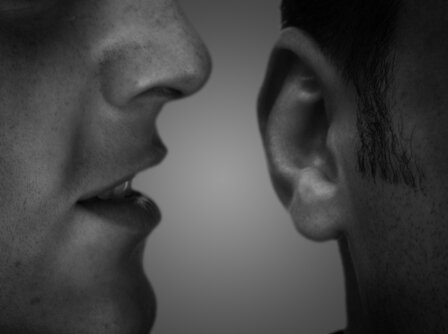Top 10 Interesting Cognitive Biases
Suggested by SMSPeople like to assume they are logical creatures that make decisions that are well thought out and untainted by extraneous elements. This assumption is true to an extent but all human beings regardless of age, intelligence, sex or nationality are affected by judgement and memory errors. These glitches are called cognitive biases and they often distort our perception of reality without us even being aware of the influence. Our brain is bombarded with a constant stream of stimulation that eventually overwhelms us and as an adaptive measure we take well-worn mental shortcuts using various cognitive biases as our paths. These biases can lead to errors in judgement, inaccurate memories and erroneous belief systems. So it is important to identify our own personal cognitive biases in order to lessen their impact on our personal choices and decision making. There are many cognitive biases but here are ten interesting ones that might be affecting your life.
10. Framing Effect

The manner in which information is presented or framed can affect the conclusions people draw from the information.
Public relations firms and marketing managers constantly exploit this bias to “spin” circumstances and sell products to consumers. One of the common tricks advertisers use is presenting actors in lab coats to talk about beauty products because people trust this image. In other words it isn’t what you say; it is how you say it. For example, when people are shown a video of a car crash and then asked to estimate the speed the vehicles were travelling at the time of impact they estimated higher speeds if the cars were described as “crashing”, “hitting” or “smashing” rather than “contacting”. Framing is used extensively by politicians as well to remain on the positive side of public opinion. Buzz words such as “global warming” have evolved into “climate change” to be less scary to the voting public. In order to overcome this bias it is important to look past how the information is presented and focus on the actual message.
9. Restraint Bias

The tendency of human beings to overestimate their control over impulses and resist temptations such as sex, food and addictive substances.
It is impossible for most people to exhibit iron self-control over themselves when confronted with temptation; just ask anyone trying to stick to a diet. People can temporarily ignore a growling stomach but cannot will their hunger away permanently. Smokers can quit smoking but should not underestimate the temptation to relapse when standing in a crowded, smoke filled party. This misconception of control can cause people to overexpose themselves to the dangers they are trying to avoid and doom themselves to failure.
8. Anchoring

A very common human trait to fixate or rely too heavily on a single piece of information to make a decision.
Once a specific anchor is set people find it easy to overlook any other pertinent facts. A very common situation where this type of bias occurs is in the process of buying a used car. People can fixate on color, odometer reading, year of manufacture or any other characteristic and completely ignore crucial considerations such as whether the vehicle has been maintained or the state of the engine. Buying a vehicle because it is pretty and red can be a costly error. Anchoring also occurs frequently when numbers are part of a decision process. For example, it has been found that people pay their credit cards off slower when presented with a minimum payment amount even if they have the means to put more money down on the debt.
7. Loss Aversion

The inclination for people to strongly favor avoiding losses over obtaining gains.
People hate to lose anything whether it is money, possessions, respect or even significant others. Loss has a more profound negative impact on people than gain in psychological terms. This bias is used as a motivating factor by employers and parents every day. Employees will work harder to keep a bonus already awarded (one that is lost if productivity falls) than a bonus not yet given until the employee is productive. Children also fall into the loss aversion bias trap when a loss of privilege rather than a promised reward evokes good behaviour.
6. Reactance

The inclination to do the opposite of what you are being influenced to do especially if the proposed direction constrains your personal choices.
People engage in all sorts of behaviors, often detrimental, when pressured by others to do the opposite. Many parents try and manipulate the reactance bias by resorting to reverse psychology with their children. Kids in the middle of a tantrum will often perversely stop yelling or crying when told to do so louder. Marketing professionals will often promote certain new games by plastering the packaging with warning labels about content and prohibiting certain demographics to play. This perceived loss of freedom of choice manipulates people into purchasing the game even if they wouldn’t have initially. This bias can also make people commit to an opinion more strongly if they are challenged or pressured to adopt another viewpoint. Reactance can have a very negative effect in any negotiation process.
5. Outcome Bias

A tendency to evaluate the success of a decision on its outcome rather than the merit of the decision when it was made.
It is very easy to Monday morning quarterback when evaluating decisions after knowing how they play out. People always feel they would have taken the positive path and avoided errors in judgement leading to negative outcomes. The choice to change jobs, invest money, get married and take professional risks is an easy one to make if the result of that change is already known. However, most decisions are made with an element of uncertainty surrounding the consequences. People should never judge decisions in the aftermath as good or bad using information hidden from the decision maker.
4. Self-Serving Bias

The human urge to claim more responsibility for successes than failures or view unclear information as positive for them personally.
People tend to slant situations in their favour which enhances self-esteem and makes them appear more successful (talented, smarter etc.) to others. Attributing success to skill or personality and failures to external factors occurs in countless everyday occurrences. Children and adults alike are guilty of this bias. When discussing grades it is common to hear a child state “I got an A and the teacher gave me a D.” The child is claiming the good grade as a result of being smart while distancing themselves from the bad grade. The same situation occurs when parents discuss the grades or behaviour of their children. How often has a disappointed mother labelled a child as “your son” to the father when recounting a transgression? The self-serving bias occurs for several reasons such as the natural inclination to protect one’s self esteem, the need to appear favourable in the eyes of others and the fact that the reasons for success are often more memorable than the cause of failures.
3. Illusion of Control
People tend to believe they can control or somehow influence events which are out of their power.
This bias is very prevalent in the realm of gambling where people are convinced that blowing on the dice or engaging in certain body postures will create a positive outcome. Lotteries feed on the illusion of control bias by letting people pick their own numbers which gives the players more confidence in winning. People can become angry when their rituals are interrupted and feel bad luck is the result of that interruption. Professional athletes are famous for attributing strings of winning games to not shaving or the wearing a certain pair of underwear rather than their own skill and ability. Rationally this type of superstition does not make sense but people are pulled in emotionally quite readily. It is also very common for people to feel more comfortable or “in control” when driving their own car rather than riding as a passenger in someone else’s vehicle.
2. Rosy Retrospection

When past events are rated more positively by people when looking at the event from the present.
Memories are not exact copies of an actual event that we can pop into a mental DVD player and see exactly what has occurred in the past. Memories are our own reconstructions of the past filtered through a complex mesh of feelings and circumstances. How many vacations, relationships and jobs look better when viewed through “rosy” time hazed glasses from the present? Even boring vacations look fun when you’re in the middle of a staff meeting! Rosy retrospection is the leading reason for many ill-fated reconciliations between incompatible couples. Minor annoyances and nuisances tend to fade faster in our recall than the pleasant experiences attributed to people and moments in our past.
1. Pareidolia

Misinterpretation of a randomly occurring stimulus as something specific or familiar.
People are hardwired from birth to recognize faces and with very little effort by the brain this bias continues throughout life. While looking at drifting clouds how many people see ships, bunny rabbits and the occasional glimpse of Elvis? Psychologists use pareidolia to gauge the mental state of their patients during the Rorschach Inkblot Test. What a person sees in the blots helps the doctor see inside their thought processes. This cognitive bias can be construed as a bit strange but it enters truly weird territory when people have profound religious or supernatural beliefs. There have been very famous cases concerning images of Jesus on grilled cheese sandwiches and the Virgin Mary in peeling paint. Unfortunately, uncertainty about the images can be construed as direct attacks on the religion itself rather than scepticism about why a sandwich would be the chosen means of communication by a deity. Most people can reason out that these random likenesses are accidental and without deep meaning but that doesn’t mean watch companies will stop advertising their watches set to 10:10. You never know, people might buy a watch more readily that looks like a little smiley face.










